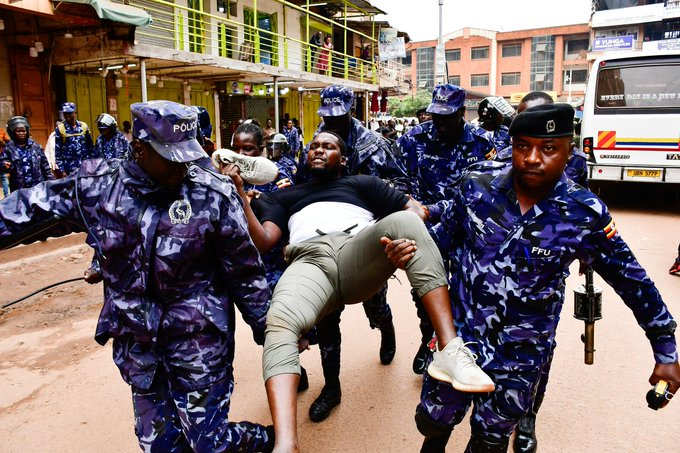Kampala police on Tuesday arrested 16 people accused of intimidating traders during a citywide strike that left several streets and arcades closed in protest against what business owners call unfair taxation and unchecked foreign competition.
Shops on Nabugabo Street, Arua Street, and surrounding arcades remained locked as traders staged a coordinated demonstration. Many gathered outside their closed premises, drawing heavy police deployment across the city.
Police spokesperson Patrick Onyango confirmed the arrests, saying officers intervened to protect business owners who wished to remain open.
“We’ve protected people’s property and lives because, in situations like this, some individuals take advantage to rob and threaten those who don’t want to participate in protests,” Onyango said.
“We’ve apprehended 16 individuals attempting to coerce business owners to close their shops.”
Although some sections of the city stayed active, such as Kikuubo, where only a handful of shops shut down, much of downtown was paralysed. Several traders claimed they had been warned by groups of youths not to open, with reports that these youths had been hired to enforce the strike.
The protests are being fuelled by anger at the Uganda Revenue Authority’s (URA) tax regime, particularly the Electronic Fiscal Receipting and Invoicing Solution (EFRIS). Traders argue that the system has been poorly explained, creates double taxation, and imposes new costs on already struggling small businesses.
Some are now openly calling for the resignation of URA Commissioner General John Musinguzi Rujoki, accusing him of ignoring their concerns.
From the traders’ leadership, Acting KACITA Chairperson Issa Ssekitto reiterated the push for reforms.
“We are going through tough times, yet many refuse to acknowledge it; we want these to be worked on by URA, but also I call upon all traders to unite for the big call for the better change,” Ssekitto said.
The strike has again underscored the fragile balance for Kampala’s small and medium-sized businesses, caught between rising operational costs, complex tax policies, and competition from foreign players. Police have pledged to maintain order while traders continue to push for concessions.
